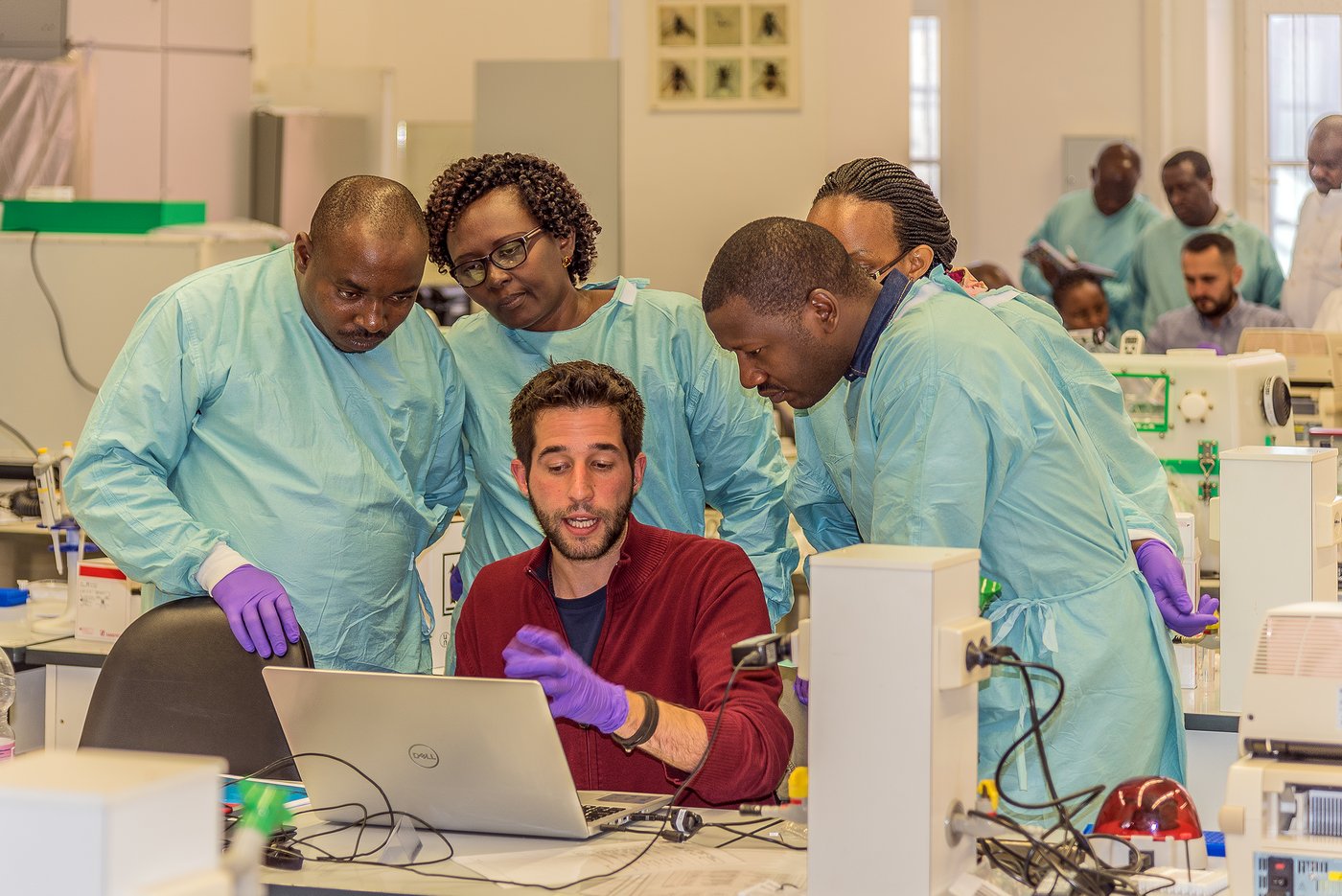Improve control
How can control measures be applied most effectively?
Innovative measures and implementation research with interdisciplinary approaches
For many tropical infectious diseases there are already vaccines, medicines or other ways of combating them. Nevertheless, these measures often do not reach the affected people and the number of infections is not reduced as much as expected. Why such measures often fail under real conditions is due to complex causes, some of which are not understood and the underlying factors of which are often unclear. This question is addressed by a relatively new discipline, implementation research, which is seen by the World Health Organization (WHO) as the key to the development and implementation of effective control strategies.

At the BNITM, implementation research will therefore be developed as a forward-looking, new branch of research. Scientific methods will be used to investigate how infectious diseases in resource-poor areas can be effectively combated with established or newly developed interventions. In this way, the BNITM aims to make a relevant contribution to eliminating poverty-related diseases.
In implementation research, studies will be carried out to optimise infection control at the level of exposed or diseased people, but also of host animal reservoirs and vectors (e.g. mosquitoes).
Taking into account the traditions and cultures of the respective region, the measures are to be integrated as far as possible into existing health systems in order to achieve greater acceptance. The aim is to develop innovative infection surveillance methods that work even in resource-poor areas and form the basis for effective control programmes. Mobile laboratories and local infrastructures are to be set up which, even in the case of epidemics, enable diagnostics and research in remote regions.
For implementation research, long-term partnerships with institutions in key regions, as well as networks for joint research and the transfer of technology and knowledge are essential. Equally crucial is the deepening of existing cooperation with WHO and other international organisations and institutes that play a role in global outbreak control.
The goal of the BNITM is, together with partners in Germany, to establish an internationally visible research location for implementation research, from which pioneering initiatives for the control and elimination of tropical diseases can emanate.
Contact
- Dr Anneke Novak-Funk
- Head of Science Management
- phone: +49 40 285380-266
- email: novak-funk@bnitm.de
Downloads
- Scientific report 2023-2024 ( PDF 9 MB )
- BNITM Flyer ( PDF 5 MB )
- Organization Chart BNITM ( PDF 2 MB )
- BNITM Strategy 2025 ( PDF 22 MB )







